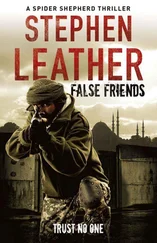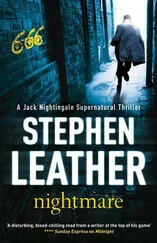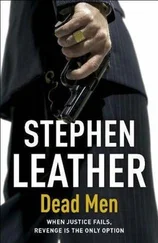The two men fell silent as the woman returned with their beers. They clinked glasses and resumed their conversation as she walked away.
‘I also have to put up with the negotiators we employ who are often prima donnas, strutting around full of their own self-importance and looking down their noses at the rest of us,’ said Standish. ‘They call us The Dirty Trade, forgetting that without us, they would be permanently out of work. In fact, they’re the perfect example of power without responsibility: if they make errors, someone else dies and they just go on to the next case.’ He flashed an embarrassed smile. ‘Apologies, Lex, I was on a bit of a rant there, wasn’t I? Anyway basically I’m now not much more than a salesman and an office boy. I have to go around the region persuading people to buy goods and services they often can’t afford and don’t really want, so basically I’m just preying on people’s misery in order to keep a load of tossers in company headquarters in their comfortable, well-paid positions.’
Harper grinned. ‘So just like the Army then.’ He paused. ‘So to business: I don’t know whether Risk Reduction has brought you fully up to speed on why I’m here?’
Standish nodded. ‘I gather you’re on the trail of Scouse Davies.’
‘So what can you tell me about him?’
‘Well he turned up here pretty much out of the blue when we were in the middle of a ransom case. We were under pressure to get the money brought out and none of our regulars was available, so our office in Geneva just took pot luck on someone. That was Scouse and when he turned up here, having known him from the Paras, I must confess I had my doubts about whether he was right for the job, but by then I just had to go with what we had. Scouse had clearly not done his due diligence and so seemed to be blissfully unaware of the risks he was running, not only from the forces of law and order in Europe and South America, who are not always well-disposed to men transporting huge amounts of undeclared cash across their national borders, but also the criminal elements - thieves, gangsters and drug cartels - in those regions who would have happily dispatched Scouse from this earth for a lot less than the amount of money he was carrying.’
‘Is that what happened, you think? He was killed for the money he was carrying?’
‘I don’t know,’ said Standish. ‘You’ve got to be brave, foolhardy or suicidal to hijack the ransom money because, no matter who actually carried out the kidnapping, the big boys are always behind it. The reason the cartels don’t do the kidnapping themselves is that it’s a big logistical strain to keep someone alive, fit and healthy over a long period of time. The victim has to be fed, watered, toileted, looked at by a doctor if he becomes ill and kept away from prying eyes, and of course if the victim dies, no one gets paid out. So the organised gangs use low-level criminals to do the kidnappings and keep the victims safe until the money has been paid. And if anyone steals the ransom money, they have the cartel to reckon with.’
‘So how is it that the money Scouse was couriering disappeared without trace?’
‘Either Scouse himself took it - you’ve known him longer than me, Lex, but we both know that he might just have been dumb enough to think he could get away with it. But if not, then the thief is probably a bent cop or official, or a rival cartel to the one running the kidnap. Whoever took it must be very well connected and protected to run the risk of antagonising a powerful cartel, and that usually means a rival one. In effect all Scouse had to do was sit quietly in his room and keep himself occupied until someone came for the money. We, as a company don’t actually hand the money over, and we don’t speak to the kidnappers direct. Everything is handled by go-betweens, so really it’s just a case of waiting until the victim is released and the money is handed over. The victim is then repatriated and the ransom money is usually divided to an agreed ratio among the people involved, with the big boys taking the major cut. To be fair to Scouse, despite my reservations about him, he did a decent enough job to start with and it did free me up to do other, more important things, so I gave an old Para comrade a helping hand by keeping him on the payroll and sending him off to do a couple of security audits on the companies that run the oil palm plantations - they’ve been clients of ours forever. It’s not a life I’d like, the plantations are usually in cleared areas of jungle, the heat and humidity are awful, the mosquitoes are even worse, and the only towns within a hundred clicks tend to be one horse, one bar, one cantina and one brothel dumps.’
He finished his beer and waved over at the woman to bring him another. Harper drained his glass and raised it to show her that it was empty. She smiled and nodded.
‘The guys who own and run the plantations don’t usually have a lot of security problems,’ said Standish. ‘The cartels don’t interfere with them, partly because shipments of fruit and palm oil can give them useful cover for their own exports. However, because the plantations have flattened large areas of rainforest and replaced it with oil palms, the owners are a bit twitchy and do have occasional spats with displaced indigenous people or local wildcat loggers who are pissed off that they weren’t the ones felling those giant rainforest hardwoods. Anyway, the plantation bosses are mostly expat British and Americans who just need an occasional bit of TLC, so most communications are in English, but when we do need interpreters at the high end of the business, we always use the best that money can buy, university graduates and the like. Lower down the scale, we still expect our consultants - and indeed our couriers - to be able to speak the language of the country in which they’re operating sufficiently well to be able to do their own interpreting and run their own instructional programs.’
The woman returned with two more beers and Standish waited until she was out of earshot before continuing.
‘Scouse had originally persuaded the people at head office that he was fluent in Spanish.’ Standish gave a weary shake of his head. ‘Apparently no one there thought it worth making the effort to check if that was true. Anyway, I explained to Scouse that while he was doing the security audits, he had to use his spare time to learn Spanish, and if he did, I would be able to give him a lot more work in the future, but…’ He gave a rueful smile. ‘Scouse being Scouse, instead of doing it the hard way, he found a local girl who had taught herself to speak English to a very decent standard, and used her as a translator. Providing it didn’t pose any threat to the security of our operations, I didn’t object, but I did make it a condition that I would only pay Scouse - at the standard rate - and he then had to pay the girl out of his money. I wasn’t prepared to sign off any extra payments just because he couldn’t be arsed to get his nose into a Teach Yourself Spanish book, or get the Rosetta Stone app.’
‘So what was his relationship with this girl?’ Harper said.
‘I don’t know if it was sexual, if that’s what you’re getting at,’ Standish said. ‘She’s very good looking but she’s twenty years younger than Scouse, and as you’ll see for yourself if you meet her, she’s a very self-confident, feisty character in her own right, so I think she’d have been much too sassy to have been Scouse’s arm-candy. I guess the arrangement just worked for both of them. With her as his interpreter, I could give him work, but without her I couldn’t; it was as simple as that.’
‘And how did Scouse come to meet her?’
‘He met her in Bolivia when he went there on a job that should have lasted a day or so but eventually ran into several weeks. When he came back to Bogotá, he had the girl - she’s called Lupa, by the way - in tow. It was mutually beneficial; he was able to make some sort of a living and no doubt she did quite well out of it, at least by local standards.’
Читать дальше











